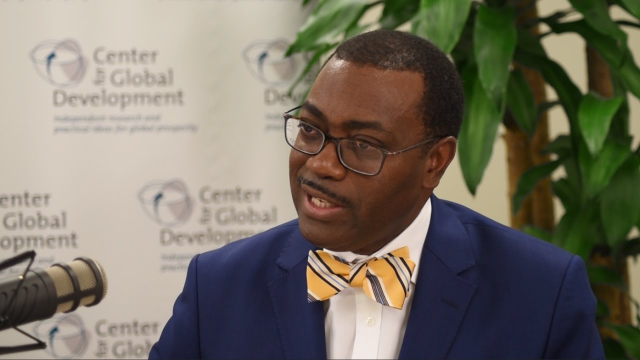Environmentalists have urged the African Development Bank (AfDB) to take more committed and decisive leadership role in fighting the climate crisis threatening half of the globe’s Gross Domestic Product (GDP).

The environmentalists, under the African Climate Reality Project, a climate diplomacy organisation, made the call in a statement signed by its Communications Officer, Ms Nicole Rodel.
Climate Reality Project is an organisation dedicated to mobilising action around climate change.
Rodel said that the current climate crisis had necessitated a unique opportunity to improve man’s relationship with nature by shifting our development pathway to one that is equitable and sustainable.
According to her, development finance institutions may be the “visible hand” that may guide and finance the much needed environmental friendly future we desire.
Rodel, however, said that Africa may remain under skyrocketing debt and climate catastrophe if the new vision of development financing remains “all talk and no action’’ at the upcoming Finance in Common (FiC) Summit scheduled to hold from Nov. 9 to Nov. 12, 2020.
The summit is aimed at stressing the crucial role of Public Development Banks in reconciling short term responses with sustainable recovery measures with long lasting impacts on the planet.
Rodel said there was need for a rapid and just transition of African economies away from their reliance on fossil fuels.
“With the climate crisis threatening over half of the global GDP, there can be no business-as-usual when the world begins to plan for a recovery from the COVID-19 pandemic.
“The twin crises, COVID-19 and the climate emergency, have made it clear, even for global financial institutions, that we must seize this moment to transform.
“About 450 public development banks across the world are coming together to address the common need for new forms of prosperity that build the resilience of people and the planet.
“Among the key partners of this iconic summit is the African Development Bank (AfDB), who in 2019 made a commitment to get out of coal and build the largest solar zone in the world in the Sahel region.
“This comes as studies confirm that mass green public investments are the most cost-effective means to revive ailing economies, ensure long-term stability, and nip climate change in the bud,” she said.
Rodel said that studies indicated that renewable energy had significant long-term prospects and may emerge stronger than before.
To achieve this, she advised governments and financial institutions to prioritise and integrate clean energy into COVID-19 recovery programmes.
“Recent research indicates that wind, solar, and other sources of green technology generate more than one-third of the world’s power.
“Solar photovoltaics surpasses coal and natural gas as the new cheapest energy source in most nations according to the International Energy Agency.
“The AfDB can and must do more to substantially expand their support for building Africa’s resilience and leaving fossil fuels in the past, by ensuring the continent leapfrogs to 100 per cent renewable energy and sustainable development,’’ she said.
By Rukayat Moisemhe
